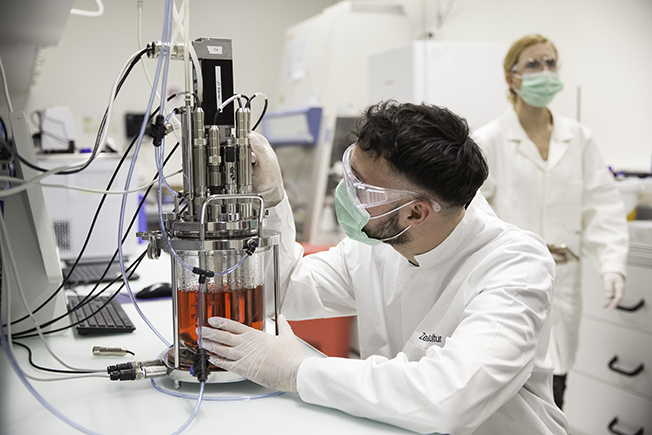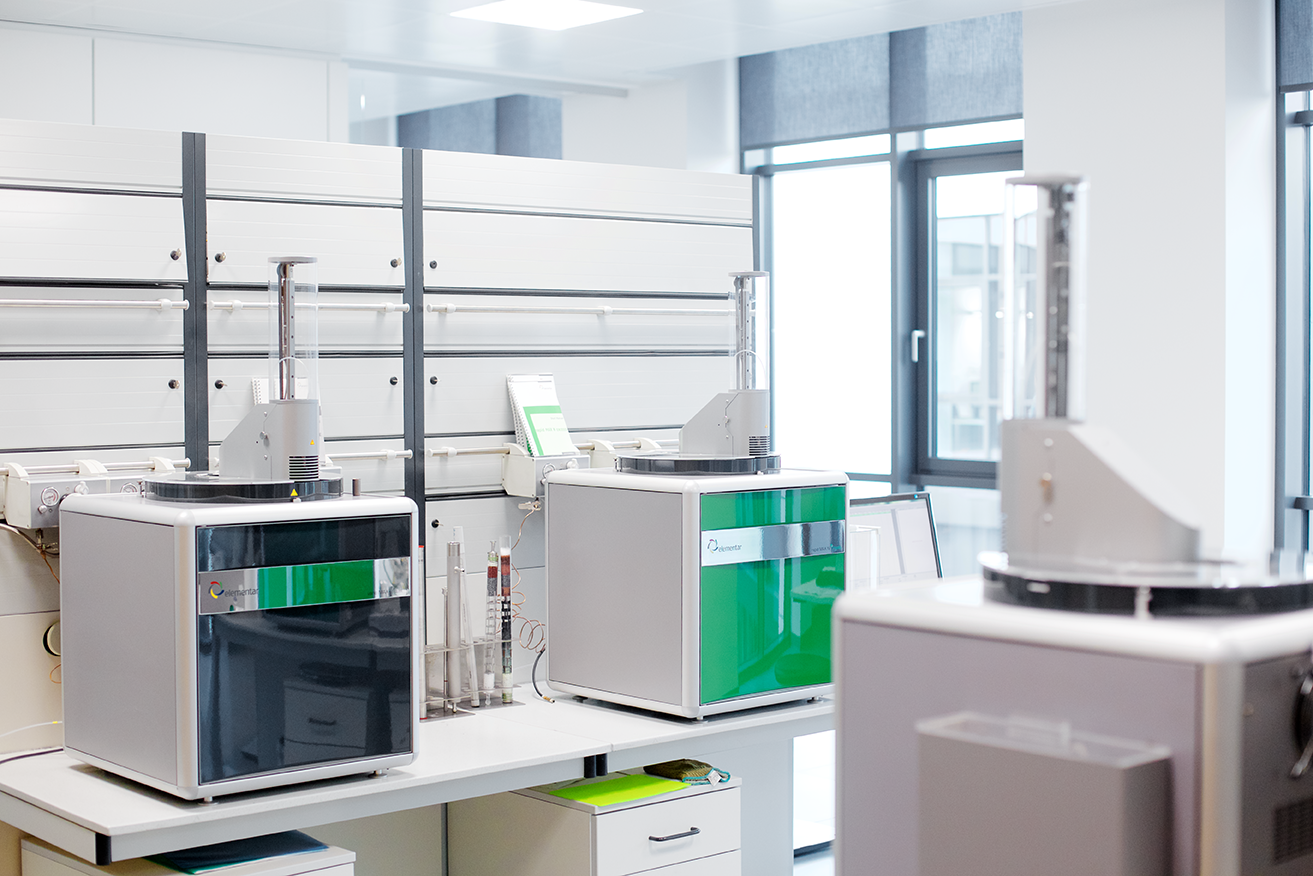

Sustainable yeast protein takes center stage in the future of food
Ernesto Cevallos Coppel & Gabriel Fuertes explain how Mexico’s PROTEO is developing a revolutionary protein source from yeast, offering a sustainable and nutritious solution to feed the growing global population
Yeast, a well-established microorganism in food production, continues to gain traction as a viable alternative protein source, primarily because its cultivation offers huge advantages over traditional animal agriculture.
It can be grown rapidly and efficiently in controlled fermentation tanks, and requires minimal land and water resources. Furthermore, advances in precision fermentation allow for targeted protein production by yeast strains, which enables the creation of complete protein sources with specific functionalities, in essencee mimicking the textural and sensory qualities of animal-derived proteins such as meat and dairy.
The resulting yeast-derived protein offers a versatile ingredient solution. And as Ernesto Cevallos Coppel and Gabriel Fuertes from Mexico’s PROTEO reveal here, this means it can be incorporated into applications from plant-based meat and dairy alternatives to protein powders and functional food formulations.
But who exactly is PROTEO? Speaking to Protein Production Technology International from the company’s HQ in Santa Fe, Cevallos Coppel, CEO & Founder, reveals how he first discovered the potential of yeast, which ultimately led to the foundation of his company.

A background in the fishing industry – where he spent several years – instilled in Cevallos Coppel a deep appreciation for protein generally. But it wasn’t until 2014 that he first stumbled upon a project developing ‘alternative’ protein. “After careful consideration, I decided to invest in this early-stage project,” he recalls. “My intuition, backed by research and positive results, told me it had potential. But it was a bold move for me. Back then, my friends and family looked at me with a mix of doubt, surprise, and confusion when I tried to explain this new path. ‘Bio what?’ was a common question.”
As is the case with many other conscientious founders in the food-tech sector, Cevallos Coppel was also keenly aware of the immense macro challenges facing our food system, with population growth, malnutrition, obesity, and shifting dietary habits placing tremendous strain on food production and resources. “This is a critical time to explore innovative solutions,” he feels.
Critical time
Environmentally, too, the need for urgency is clear. Water scarcity will become increasingly severe, impacting both rural and urban areas. Temperatures are also projected to rise by 3.2°C, leading to more frequent droughts and fires. And despite valiant efforts, food production is expected to decline by 2-6% per decade. “And here’s another unsettling truth,” Cevallos Coppel adds. “The UN predicts that, by 2035, up to 700 million people will be displaced due to soil degradation alone. By 2050, the population will also surge to nearly 10 billion. To feed everyone, we’ll need to produce almost double the food with resources exceeding our planet’s current capacity by 70%.”
According to the FAO, hunger and malnutrition remain stubbornly above 10% globally. Meanwhile, more than a third of the population battles diabetes, and the number of obese children will surpass the number of hungry children. “Obesity is poised to become the true pandemic of the 21st century, affecting over 230 million people and causing over three million deaths annually,” Cevallos Coppel states.
But the Mexican pioneer insists it’s not all doom and gloom. “Fortunately, solutions such as biotechnology are emerging to revolutionize the food landscape. We’re entering a world of bioprocesses, AI, food engineering, and more. At PROTEO, we’re right at the heart of this,” he says.

“As a team, we come from diverse backgrounds – science, research, food science, health, marketing, even anthropology. This allows us to approach the challenge from unique angles. We want to present PROTEO as a biotech company born to address these challenges. We’re here to help people and the planet.”
Humble beginnings to global impact
Although yeast protein production has a long history, modern technology is now unlocking its true potential, with precision fermentation revolutionizing the field. It all began in the 19th century with Louis Pasteur, a French pioneer who studied and controlled microorganisms. By the 20th century, industries harnessed this power to generate enzymes, vaccines, and drugs in a controlled manner.
“We’re building on this foundation with cutting-edge fermentation techniques,” continues Cevallos Coppel. “These bioprocesses create our yeast protein and other products with remarkable sensory and functional qualities.”
Shifting from the world of pharmaceuticals – where small-dose drugs are produced – to the food and nutraceutical industry is the exciting challenge for Cevallos Coppel and his PROTEO colleagues. “Here, the goal is to manufacture tons of product to nourish a growing population, with the potential to disrupt the entire food and nutraceutical landscape.”
As Chief Commercial Officer Fuertes suggests that yeast also presents itself as a promising protein source due to its combined techno-functional and organoleptic characteristics.
On the functional side, it offers gelling properties for thickening and texturizing foods, can act as an emulsifier, and has good water-binding capacity to maintain texture and shelf life. Additionally, autolysis of yeast can enhance flavor through the release of savory umami compounds. Nutritionally, meanwhile, yeast stands out as a complete protein source containing all essential amino acids.
However, the organoleptic side requires some consideration. While some yeast strains boast pleasant cheesy, nutty, or yeasty flavors, others might have a strong, undesirable taste. Processing techniques therefore play a crucial role in mitigating these unwanted flavors, allowing yeast to shine as a versatile and functional protein source overall.
Our bioprocess minimizes the use of land and water, precious resources heavily taxed by traditional protein production
The sustainability credentials of yeast are equally as impressive as the nutritional benefits. “Our bioprocess minimizes the use of land and water, precious resources heavily taxed by traditional protein production,” says Fuertes. “For example, just 20 liters of water are needed to produce 1kg of our protein, PROTEO. This compares favorably to conventional protein sources such as meat, which require a staggering 15,000 liters per kilo, and even soy, which uses 2,000 liters per kilo. Beyond water efficiency, our process boasts high productivity with a 48-hour production cycle.”
PROTEO’s star product is a bioprotein, Pro-50, which lauds a high nutritional and biological value. “It’s a perfect 50% protein content, ideal for creating high-quality formulas in supplements, nutraceuticals, and premium foods,” continues Cevallos Coppel. “We’re also developing Pro-40 (40% protein/30% fiber), Pro-60 (60% protein), and Pro-70 (70% protein) to offer solutions across diverse applications such as bakery goods, beverages, and dairy products.
“We’ve fostered a powerful ecosystem of production companies, innovation centers, research institutions, marketing agencies, and network companies – all working collaboratively,” he says.
“Our strategy revolves around promoting our technology and bioprotein alongside the R&D power of established food and nutraceutical corporations. We envision open, collaborative innovation models for the future, with a twofold approach: utilize our technology for internal use and leverage it to ignite new markets.
“We collaborate with clients through various models, including licensing, co-investment, CMO, and others, based on mutual benefit. This model ensures we scale production capacity to meet the surging demand for alternative proteins.”

Pro-50 is exemplified as an exceptional protein source for food fortification. “Its high bioavailability, thanks to a high degree of hydrolysis, translates to better absorption by your body,” states Fuertes. “It allows you to enrich a variety of products, helping them achieve ‘good source of protein’ or ‘high protein content’ labels according to international regulations. Pro-50 also boasts a high mineral content, such as iron, a crucial component of hemoglobin for oxygen transport through the body. Low sodium content also makes it ideal for those with hypertension or wanting to prevent cardiovascular disease.”
A key differentiator, though, is that Pro-50 is gluten-free, unlike many plant-based proteins. “This makes it a safe and healthy option for people with celiac disease, children with gluten sensitivities, and anyone seeking a gluten-free diet,” Fuertes adds. “Pro-50 is also very low in fat and rich in dietary fiber, making it a valuable ally for weight-management diets.”
Ultimately, Fuertes and Cevallos Coppel see immense potential for Pro-50 in the nutraceutical and food supplement market, with its ability to enhance formulations by combining well with other plant-based proteins, vitamins, and antioxidants.
Pro-50 presents exciting opportunities in food particularly as it can strengthen existing food matrices and, even more importantly, fuel innovation in creating entirely new ones. “Think dairy products (milk, yogurts, cheeses), meat alternatives, sausages, flours, and beyond,” Fuertes says. “Pro-50’s unique properties allow it to significantly enhance formulations in the rapidly growing plant-based market.”
“We understand and use the natural processes that sustain us, transforming yeast protein production into a bioprocess accessible to industry and consumers alike,” says Cevallos Coppel. “We are among the pioneers of a new generation of alt protein producers in Mexico, leveraging biotech to innovate and deliver solutions. From the ground up, our bioprocess is designed with the future in mind, addressing nutritional needs, quality of life, and planetary sustainability.”
For more information visit www.proteo.bio
If you have any questions or would like to get in touch with us, please email info@futureofproteinproduction.com


%20ILVO%202.jpg)

.png)

